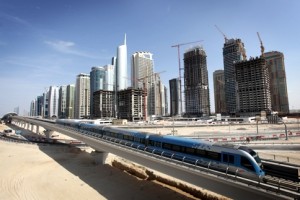By Property Wire www.nuwireinvestor.com
Developers need to adapt to greater scrutiny and expectations in a changing real estate market, according to a report that shows Abu Dhabi on the rise while perennial investor favorite Dubai must reassess its approach to stay on top in the Gulf region. Investor confidence in Gulf property appears undaunted by economic adversity with nearly two-thirds expressing an intent to buy, despite increased awareness of market risk.

See the following article from Property Wire for more on this.
The Gulf region offers good value for money for real estate investors at present with two thirds of would be property buyers intending to purchase in the region in the future despite being more aware of the risks involved, according to a new report.
Some 63% said they were likely to invest, 15% said they were unlikely to do so and 16% said they do not think the region offers good value property at present, the FutureBrand Gulf Real Estate Study shows.
The confidence shown in the region’s real estate market exists despite the research showing that the principal impact of the global economic downturn was a lack of trust in developers.
‘Heightened awareness of risk, the potential for monetary loss, loopholes and corruption all should point to a weakening of homebuyer confidence. But this new wariness does not seem to affect buyer attitudes,’ the report says.
Nearly 57% of respondents said they were more aware of risk now, following the real estate downturn in 2009, almost 50% said they were now more aware of loopholes and corruption while about 53% said they believed property prices would decline further. A further 38.6% said they had less trust in the developers to deliver what they promise.
And Dubai is still a popular location for investors with more than 43% indicating that the emirate is their number one choice in the region despite house prices slumping by up to 50% percent in some parts of the city during 2009.
Abu Dhabi is also increasingly popular with the capital of the United Arab Emirates more than doubling its appeal among buyers looking to buy a second or vacation property in the Gulf region.
Some 23% picked Abu Dhabi as their preferred location in 2009, compared to just 11.5% the previous year. The report said it saw Abu Dhabi as having the potential to take over from Dubai as the top property location in the long run.
‘With its financial strength and its rise as a destination of note, Abu Dhabi is best placed to lead the region’s real estate recovery. It is also poised to be the first place in the region to attract foreign investment and partnership opportunities in the future, should the emirate seek these,’ the report says.
But Jae Hwang, executive director at FutureBrand, said Dubai still had a lot going for it and that it was premature to announce the death of its real estate industry. ‘The business model for real estate in Dubai needs to be re-evaluated and I believe companies are starting to do that but our study shows that it’s still the most popular place to live,’ he explained.
He said mega projects like the Burj Khalifa and Dubai Metro becoming a reality added to the city’s appeal to would be home buyers.
Doha was the third most popular city, named by just over 11% of respondents followed by Jeddah, 9.2%, and Muscat, 5.9%. All top five locations increased their appeal in 2009 but Sharjah and Ras al Khaimah saw big falls last year compared to 2008. Sharjah dropped from being the most popular location with 9.9% of buyers in 2008 to just 0.4% last year while RAK fell from 6.8% to 0.8%. Riyadh, Manama, Kuwait City and Fujairah also lost appeal among property buyers.
The report also said that developers should consider setting up crisis management teams to help improve their brands as part of their strategies for the future. ‘Even though most players in the region are private entities, adapting the PR practices of publicly listed companies in managing crises will help them better weather the storms that might lie ahead,’ it said.
It predicted that developers will be scrutinized more than ever before. ‘The days when business needs set marketing deadlines with no correlation to the development timeline have passed. This spells doom for those brands that maintain hype-driven empty promises,’ it warned.



















